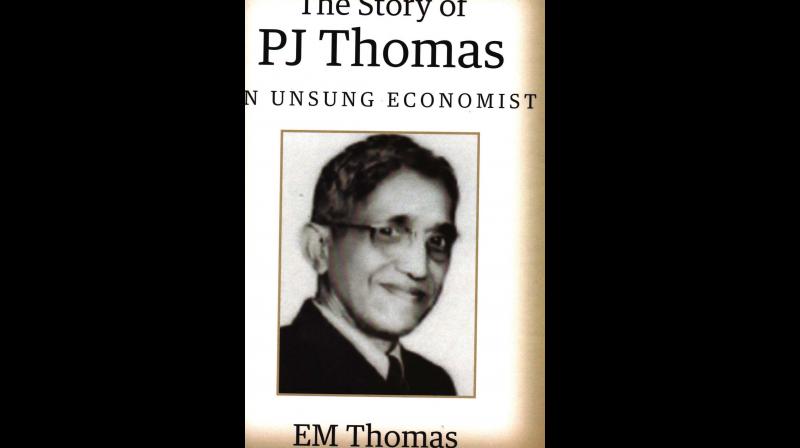A tribute to an unsung economist PJ Thomas
An economic adviser to the colonial government and first government of independent India.

Kerala has not produced many brilliant scholars in either natural or social sciences. When it comes to economic science, one name that comes to mind is that of professor K.N. Raj, who was an economist of world standing. But he belonged to the post-independence era. It is here that the contributions of Dr. P.J. Thomas, another veteran Kerala-based economist, who began serving the country during the pre-independence period, assumes relevance.
Born in 1893 in Kuravilangad, Kottayam district, Dr Thomas had his education in C.M.S. College, Kottayam, St. Joseph’s College, Thiruchirappally, and Oxford University. On his return, he joined the economics department of Madras University. In a professional career spanning over 30 years, Dr. Thomas held several positions. He was economic adviser to the colonial government as well as the first government of independent India. He chaired or was member of several commissions and committees and in that capacity made major contributions to the economic policy-making of the country. He was nominated to Rajya Sabha in 1957.
Unfortunately, Dr Thomas is almost unknown to the present generation of Keralites, let alone Indians. Not much has been written about him nor there exists any memorial in his name.
The biography of Dr P.J. Thomas by Dr E.M. Thomas is in a way correcting the historical wrong done to this eminent son of Kerala. Aptly titled The Story of P.J. Thomas: An Unsung Economist, the book is a journey through his professional career rather than a chronicle of his personal life. Lucidly written, the book looks at the life and career of P.J. Thomas in a dispassionate manner, a quality rarely seen in biographies. An economist himself, Dr. E.M. Thomas could critically look at his academic and policy contributions in the backdrop of the policy changes and developments in the nation’s economy during the last 70 years.
A noteworthy feature of the book is that the author has tried to highlight the theoretical underpinnings of Dr. P.J. Thomas’s prescription on India’s economic problems.
The author has brought out the originality and rare insights of Dr. Thomas in dealing with issues like tenancy reforms, indebtedness of farmers and the fall of rupee following the Great Depression of 1930s. Dr. E.M. Thomas has rendered a great service to the posterity by bringing out this book which is the end product of nine years of painstaking research. It rightly deserves the praise showered upon it by eminent academics and policy-makers like Dr C. Rangarajan, Dr Y.V. Reddy and Dr Aravind Subramayam.

